Reviewer Recognition
Our reviewers are essential in supporting the publication process of Cancer Gene Therapy. Their knowledge and critical evaluation is key and always appreciated.
To show our thanks, we present here the profiles of those awarded our 'top reviewer' accolade in recent years.
2023
Daolin Tang - USA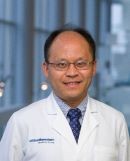 Daolin Tang received his MD and PhD degrees from Norman Bethune College of Medicine and Xiangya School of Medicine in China, respectively. He then received post-graduate training in tumor immunology in the laboratory of Michael T. Lotze at the University of Pittsburgh Cancer Institute. Currently, Dr. Tang is a Professor in the Department of Surgery at the University of Texas Southwestern Medical Center and Director of the Center for DAMP Biology in USA. Dr. Tang has a proven track record of successful and productive research involving regulated cell death, autophagy, and immunometabolism in sepsis and pancreatic cancer. In particular, his group was the first to report the HMGB1-dependent autophagy, autophagy-dependent ferroptosis, and pH-dependent alkaliptosis. Dr. Tang has received numerous awards, including being named Highly Cited Researchers in the world by Clarivate/Web of Science, and receiving Research Scholar Awards from the American Cancer Society (ACS) and American Association for Cancer Research (AACR).
Daolin Tang received his MD and PhD degrees from Norman Bethune College of Medicine and Xiangya School of Medicine in China, respectively. He then received post-graduate training in tumor immunology in the laboratory of Michael T. Lotze at the University of Pittsburgh Cancer Institute. Currently, Dr. Tang is a Professor in the Department of Surgery at the University of Texas Southwestern Medical Center and Director of the Center for DAMP Biology in USA. Dr. Tang has a proven track record of successful and productive research involving regulated cell death, autophagy, and immunometabolism in sepsis and pancreatic cancer. In particular, his group was the first to report the HMGB1-dependent autophagy, autophagy-dependent ferroptosis, and pH-dependent alkaliptosis. Dr. Tang has received numerous awards, including being named Highly Cited Researchers in the world by Clarivate/Web of Science, and receiving Research Scholar Awards from the American Cancer Society (ACS) and American Association for Cancer Research (AACR).
Michael M. Gottesman - USA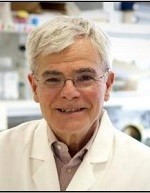 Michael M. Gottesman is the Chief of the Laboratory of Cell Biology, Center for Cancer Research, National Cancer Institute. He obtained his M.D. from Harvard Medical School, completed his internship and residency in medicine at the Peter Bent Brigham Hospital in Boston, and received his postdoctoral research training in molecular genetics with Martin Gellert at the NIH. Dr. Gottesman developed somatic cell genetic systems for the analysis of drug resistance in cancer cells. Those studies led to the cloning of the human MDR1 (ABCB1) gene and the elucidation of its function in normal tissues and in cancer cells. The Gottesman lab continues to focus on identifying mechanisms of multidrug resistance in cancer and in determining the clinical relevance of these mechanisms with the intent to find ways to circumvent or exploit multidrug resistance and improve the treatment of cancer. From 1993 to 2022 Dr. Gottesman served as the NIH Deputy Director for Intramural Research. He was elected to the Institute of Medicine in 2003 (now the National Academy of Medicine), to the American Academy of Arts and Sciences in 2010, and to the National Academy of Sciences in 2018.
Michael M. Gottesman is the Chief of the Laboratory of Cell Biology, Center for Cancer Research, National Cancer Institute. He obtained his M.D. from Harvard Medical School, completed his internship and residency in medicine at the Peter Bent Brigham Hospital in Boston, and received his postdoctoral research training in molecular genetics with Martin Gellert at the NIH. Dr. Gottesman developed somatic cell genetic systems for the analysis of drug resistance in cancer cells. Those studies led to the cloning of the human MDR1 (ABCB1) gene and the elucidation of its function in normal tissues and in cancer cells. The Gottesman lab continues to focus on identifying mechanisms of multidrug resistance in cancer and in determining the clinical relevance of these mechanisms with the intent to find ways to circumvent or exploit multidrug resistance and improve the treatment of cancer. From 1993 to 2022 Dr. Gottesman served as the NIH Deputy Director for Intramural Research. He was elected to the Institute of Medicine in 2003 (now the National Academy of Medicine), to the American Academy of Arts and Sciences in 2010, and to the National Academy of Sciences in 2018.
Xiaofan Guo - USA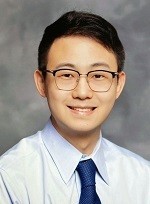 Xiaofan Guo, M.D. Ph.D. is currently the Academic Chief Neurology Resident Physician at Loma Linda University Health and an incoming Neuroendovascular Surgery Fellow at the University of Pittsburgh Medical Center. He finished his Ph.D. thesis at Shandong University and Washington University in St. Louis, focused on neuroimmunology and cancer neuroscience in glioma and neuroimmunology in cerebrovascular disease. His research interests include Neuroendovascular treatment of CNS tumors, Cancer Neuroscience, Cancer Neuroimmunology, and Endovascular treatment of Stroke.
Xiaofan Guo, M.D. Ph.D. is currently the Academic Chief Neurology Resident Physician at Loma Linda University Health and an incoming Neuroendovascular Surgery Fellow at the University of Pittsburgh Medical Center. He finished his Ph.D. thesis at Shandong University and Washington University in St. Louis, focused on neuroimmunology and cancer neuroscience in glioma and neuroimmunology in cerebrovascular disease. His research interests include Neuroendovascular treatment of CNS tumors, Cancer Neuroscience, Cancer Neuroimmunology, and Endovascular treatment of Stroke.
Junlong Chi - USA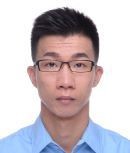 Junlong (Jack) Chi is currently a fourth-year Ph.D. student in the Driskill Graduate Program (DGP) in Life Science at Northwestern University. He obtained his BSc in Biomedical Engineering at the Hong Kong Polytechnic University, Hong Kong, China. He then undertook his MS degree in Biomedical Engineering at Northwestern University and proceeded with his Ph.D. study in the DGP at Northwestern University. Junlong’s research focuses on elucidating in-depth mechanisms of post-translational modification driving immune evasion in breast cancer and developing potential targeted strategies against breast cancer.
Junlong (Jack) Chi is currently a fourth-year Ph.D. student in the Driskill Graduate Program (DGP) in Life Science at Northwestern University. He obtained his BSc in Biomedical Engineering at the Hong Kong Polytechnic University, Hong Kong, China. He then undertook his MS degree in Biomedical Engineering at Northwestern University and proceeded with his Ph.D. study in the DGP at Northwestern University. Junlong’s research focuses on elucidating in-depth mechanisms of post-translational modification driving immune evasion in breast cancer and developing potential targeted strategies against breast cancer.
Yifei Cheng - China Yifei Cheng is currently a third-year M.D. and Ph.D. student in Nanjing Medical University, China. He received his Master of Medicine degree in the first affiliated hospital of Nanjing Medical University majoring in Urology Surgery. He will soon be a urologist surgeon in Southeast University Zhongda Hospital, China. Yifei’s personal research interests include resolving tumor heterogeneity and microenvironment of prostate cancer, discovering novel gene therapy target for lethal prostate cancer, and polishing diagnostic and surgical strategies of prostate cancer.
Yifei Cheng is currently a third-year M.D. and Ph.D. student in Nanjing Medical University, China. He received his Master of Medicine degree in the first affiliated hospital of Nanjing Medical University majoring in Urology Surgery. He will soon be a urologist surgeon in Southeast University Zhongda Hospital, China. Yifei’s personal research interests include resolving tumor heterogeneity and microenvironment of prostate cancer, discovering novel gene therapy target for lethal prostate cancer, and polishing diagnostic and surgical strategies of prostate cancer.
Yaqi Zhang - USA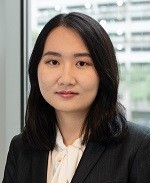 Yaqi Zhang is trained as a cancer biologist at Northwestern University. She received BSc in Pharmaceutical Sciences at Peking University, China, and MS degree in Biotechnology at Northwestern University. She then started graduate research at Feinberg School of Medicine at Northwestern University, where she obtained the PhD degree in Life Sciences. Her research interest is in epigenetic regulation of ovarian cancer development, including ovarian cancer stem cell survival and differentiation, and development of drug-resistance properties.
Yaqi Zhang is trained as a cancer biologist at Northwestern University. She received BSc in Pharmaceutical Sciences at Peking University, China, and MS degree in Biotechnology at Northwestern University. She then started graduate research at Feinberg School of Medicine at Northwestern University, where she obtained the PhD degree in Life Sciences. Her research interest is in epigenetic regulation of ovarian cancer development, including ovarian cancer stem cell survival and differentiation, and development of drug-resistance properties.
2022
Daolin Tang - USA Daolin Tang received his MD and PhD degrees from Norman Bethune College of Medicine and Xiangya School of Medicine in China, respectively. He then received post-graduate training in tumor immunology in the laboratory of Michael T. Lotze at the University of Pittsburgh Cancer Institute. Currently, Dr. Tang is an Associate Professor in the Department of Surgery at the University of Texas Southwestern Medical Center and Director of the Center for DAMP Biology in USA. Dr. Tang has a proven track record of successful and productive research involving regulated cell death, autophagy, and immunometabolism in sepsis and pancreatic cancer. In particular, his group was the first to report the HMGB1-dependent autophagy, autophagy-dependent ferroptosis, and pH-dependent alkaliptosis. Dr. Tang has received numerous awards, including being named Highly Cited Researchers in the world by Clarivate/Web of Science, and receiving Research Scholar Awards from the American Cancer Society (ACS) and American Association for Cancer Research (AACR).
Daolin Tang received his MD and PhD degrees from Norman Bethune College of Medicine and Xiangya School of Medicine in China, respectively. He then received post-graduate training in tumor immunology in the laboratory of Michael T. Lotze at the University of Pittsburgh Cancer Institute. Currently, Dr. Tang is an Associate Professor in the Department of Surgery at the University of Texas Southwestern Medical Center and Director of the Center for DAMP Biology in USA. Dr. Tang has a proven track record of successful and productive research involving regulated cell death, autophagy, and immunometabolism in sepsis and pancreatic cancer. In particular, his group was the first to report the HMGB1-dependent autophagy, autophagy-dependent ferroptosis, and pH-dependent alkaliptosis. Dr. Tang has received numerous awards, including being named Highly Cited Researchers in the world by Clarivate/Web of Science, and receiving Research Scholar Awards from the American Cancer Society (ACS) and American Association for Cancer Research (AACR).
Junlong Chi - USA Junlong (Jack) Chi is currently a fourth-year Ph.D. student in the Driskill Graduate Program (DGP) in Life Science at Northwestern University. He obtained his BSc in Biomedical Engineering at the Hong Kong Polytechnic University, Hong Kong, China. He then undertook his MS degree in Biomedical Engineering at Northwestern University and proceeded with his Ph.D. study in the DGP at Northwestern University. Junlong’s research focuses on elucidating in-depth mechanisms of post-translational modification driving immune evasion in breast cancer and developing potential targeted strategies against breast cancer.
Junlong (Jack) Chi is currently a fourth-year Ph.D. student in the Driskill Graduate Program (DGP) in Life Science at Northwestern University. He obtained his BSc in Biomedical Engineering at the Hong Kong Polytechnic University, Hong Kong, China. He then undertook his MS degree in Biomedical Engineering at Northwestern University and proceeded with his Ph.D. study in the DGP at Northwestern University. Junlong’s research focuses on elucidating in-depth mechanisms of post-translational modification driving immune evasion in breast cancer and developing potential targeted strategies against breast cancer.
Arash Minai-Tehrani - Iran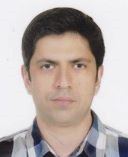 Arash Minai-Tehrani received his MSc in 2006 and his PhD in 2012 in the field of cancer gene therapy at Seoul National University, South Korea. He then joined Nanobiotechnology Research Center, Avicenna Research Institute, ACECR, Tehran, IRAN in 2013 as a faculty member. His personal research interests include cancer and gene therapy to find a new method for targeted cancer therapy, wound dressings and male infertility.
Arash Minai-Tehrani received his MSc in 2006 and his PhD in 2012 in the field of cancer gene therapy at Seoul National University, South Korea. He then joined Nanobiotechnology Research Center, Avicenna Research Institute, ACECR, Tehran, IRAN in 2013 as a faculty member. His personal research interests include cancer and gene therapy to find a new method for targeted cancer therapy, wound dressings and male infertility.
